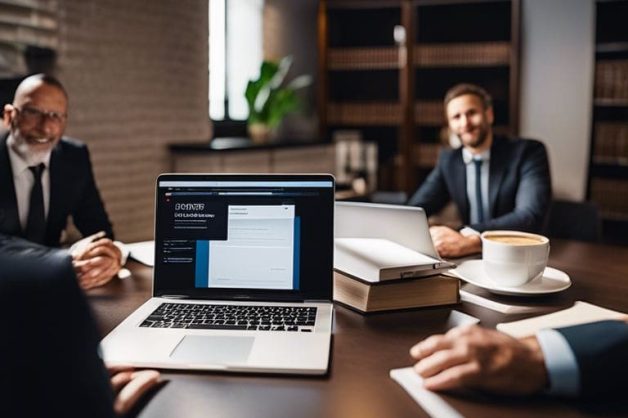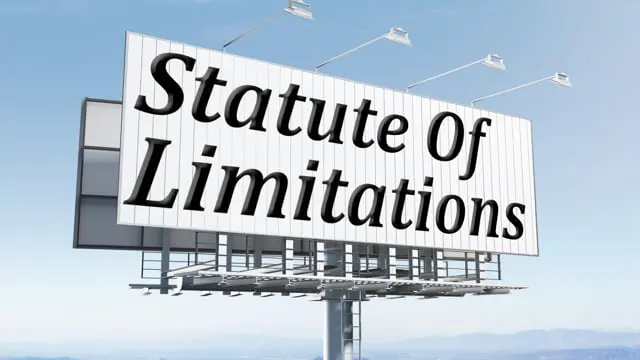If you’re a lawyer looking to establish a strong presence on LinkedIn, leveraging the power of LinkedIn Groups can be a highly effective strategy. You can engage with potential clients, network with fellow legal professionals, and position yourself as an authority in your field. However, knowing what type of content to share in these groups can be crucial for success.
Comprender a su público
Profiling Your Target Group Members
Members of LinkedIn groups for lawyers come from diverse backgrounds and specialize in various areas of law. To effectively engage with your audience, it is crucial to profile your target group members. This involves understanding their professional experiences, interests, and challenges. By identifying commonalities among group members, you can tailor your content to resonate with their specific needs and preferences.
Take the time to analyze the types of posts that receive the most engagement within the group. This information can give you valuable insights into the topics that interest your audience and the type of content they find most valuable. By understanding your target group members on a deeper level, you can create content that is both relevant and compelling to them.
Tailoring Content to Different Legal Specialties
Different legal specialties require unique insights and expertise. When crafting content for LinkedIn groups, it is imperative to tailor your posts to cater to the specific interests of members practicing different legal specialties. For example, a group consisting of corporate lawyers may be more interested in content related to mergers and acquisitions, while a group of criminal defense attorneys may prefer content on courtroom strategies and case studies.
Understanding the nuances of various legal specialties allows you to position yourself as a valuable resource within LinkedIn groups. By catering your content to the specific needs of different legal professionals, you can establish credibility and authority in your niche area of law.
Content That Educates
Sharing Legal Updates and Analysis
Legal professionals on LinkedIn can use the platform to share valuable legal updates and analysis with their network. This content can include changes in laws, recent court decisions, regulatory updates, or insights on legal trends. By sharing such information in LinkedIn groups, lawyers can establish themselves as thought leaders in their field and provide relevant and timely information to their connections.
Hosting Q&A Sessions
Legal professionals can also engage with their audience by hosting Q&A sessions in LinkedIn groups. These sessions can focus on specific legal topics or general legal advice. By answering questions and providing guidance, lawyers can showcase their expertise and build credibility among group members. This interactive format allows for direct engagement with the audience and can help in establishing a strong online presence.
Hosting Q&A sessions in LinkedIn groups provides an opportunity for lawyers to directly connect with their audience, build relationships, and establish themselves as trustworthy and knowledgeable professionals in their field. This interactive format encourages engagement and allows for real-time communication with group members, fostering a sense of community within the group.
Networking Through Thought Leadership
Writing and Sharing In-Depth Articles
To establish yourself as a thought leader in your field on LinkedIn, consider writing and sharing in-depth articles on relevant topics. By providing valuable insights, analysis, and solutions to common challenges, you can showcase your expertise and attract the attention of other professionals in your industry. When crafting your articles, focus on addressing current issues, trends, or legal developments that are of interest to your target audience. Make sure to use clear and concise language, provide actionable advice, and support your points with credible sources to establish credibility.
Participating in Discussions with Expert Opinions
One effective way to network and engage with other professionals in LinkedIn groups is by participating in discussions with expert opinions. Share your insights, offer practical solutions, and ask thoughtful questions to demonstrate your knowledge and expertise. By adding value to the conversation and showcasing your unique perspective, you can establish yourself as a trusted authority in your field. Remember to engage authentically, respect differing opinions, and stay professional in your interactions to build meaningful connections and enhance your reputation as a thought leader.
Thought leadership is not just about sharing your own ideas; it’s also about learning from others and contributing to a collective pool of knowledge. By actively participating in discussions, sharing your expertise, and engaging with other professionals in your industry, you can expand your network, stay informed about industry trends, and position yourself as a valuable resource for valuable insights and expertise.
Multimedia
Creating Engaging Videos
To truly captivate your audience on LinkedIn, consider creating engaging videos that showcase your expertise and provide valuable insights. The use of video content has become increasingly popular on social media platforms, including LinkedIn, as it offers a more interactive and visually appealing way to connect with your audience. By sharing informative videos on legal topics, discussing recent case studies, or offering tips and advice, you can establish yourself as a thought leader in your field and drive engagement with your LinkedIn group members.
Podcasts and Webinars for Legal Professionals
With the rise of podcasts and webinars as popular forms of content consumption, legal professionals can leverage these mediums to share their knowledge and connect with a wider audience on LinkedIn. Hosting a podcast or webinar series on legal topics can provide a platform for you to discuss relevant industry trends, conduct interviews with other legal experts, and offer valuable insights to your group members. These audio and visual formats allow for in-depth discussions and can help you establish credibility and authority within your LinkedIn community.
Engaging your LinkedIn group members with podcasts and webinars can create a unique opportunity to foster meaningful conversations, address common challenges, and provide mentorship to up-and-coming legal professionals. By leveraging these multimedia formats, you can establish a strong presence in your LinkedIn group and position yourself as a valuable resource for legal insights and expertise.
Interactive Content
Polls and Surveys to Gauge Opinions
Many lawyers are constantly looking for innovative ways to engage with their audience on LinkedIn, and one effective method is through the use of polls and surveys. By creating polls that prompt members to share their opinions on relevant legal topics or industry trends, lawyers can gather valuable insights while simultaneously increasing engagement within their LinkedIn groups. Surveys can also be utilized to collect feedback on specific questions, allowing lawyers to tailor their content and services to better meet the needs of their audience.
Organizing Virtual Roundtable Discussions
Many lawyers have found success in organizing virtual roundtable discussions within their LinkedIn groups. This interactive format allows for real-time conversation and collaboration among members, fostering a sense of community and establishing the lawyer as a thought leader in their field. By inviting industry experts to participate in these discussions, lawyers can leverage their connections to provide valuable insights and perspectives to group members.
Organizing virtual roundtable discussions requires careful planning and moderation to ensure a productive and engaging experience for all participants. Lawyers can choose relevant topics, invite knowledgeable speakers, and encourage active participation from group members. By fostering meaningful conversations and providing valuable takeaways, virtual roundtable discussions can help lawyers establish themselves as authorities in their practice areas and build a loyal following within their LinkedIn groups.
Harnessing the Power of Storytelling
Sharing Client Success Stories (Without Breaching Confidentiality)
Client success stories can be powerful tools for engagement on LinkedIn. However, it’s crucial to share these stories without compromising client confidentiality. To do this, focus on the general outcome of the case without revealing specifics that could identify the client. Highlight the legal strategy employed, challenges overcome, and the positive results achieved. By showcasing these successes tastefully, you can build credibility and trust with your audience.
Behind-the-Scenes Glimpses of Legal Challenges
Without oversharing sensitive information, offering a glimpse into the legal challenges you face can humanize your practice and demonstrate your expertise. Share anecdotes about unique cases, intriguing legal dilemmas, or hurdles you’ve conquered. This behind-the-scenes look not only educates your audience about the complexities of your work but also showcases your problem-solving skills and resilience as a lawyer.
Providing insight into the complexities of legal challenges can help demystify the legal process for your audience. By sharing these glimpses, you position yourself as a knowledgeable and trustworthy legal professional who is dedicated to serving clients effectively.
Building a Content Calendar
Once again, building a content calendar is crucial for lawyers looking to create engaging content in LinkedIn groups. A content calendar helps you stay organized, plan your posts in advance, and maintain a consistent presence in the groups. By outlining your content topics, publishing dates, and platforms to share them on, you can ensure that your content strategy aligns with your goals and resonates with your audience.
Planning and Scheduling Content for Consistency
Building a content calendar involves planning and scheduling your posts to ensure consistency. This means deciding on the frequency of your posts, whether it’s a daily, weekly, or monthly basis, and sticking to that schedule. By batching your content creation and scheduling posts in advance, you can save time and focus on other important tasks while still engaging with your audience regularly.
Seasonal and Trending Topics for Legal Discussions
Scheduling your content around seasonal and trending topics can help you stay relevant and attract more engagement in LinkedIn groups. By keeping an eye on current events, industry trends, and upcoming holidays, you can tailor your content to address timely issues that are on the minds of your audience. This not only demonstrates your expertise in the field but also shows that you are actively participating in the conversations that matter in the legal community.
Promoting Group Engagement
Now that you have successfully built a community within your LinkedIn group, it is imperative to keep the engagement levels high to ensure its continued growth and value. Engagement is key to fostering meaningful discussions, creating connections, and establishing thought leadership within your group.
Encouraging Member-Generated Content
An effective way to promote group engagement is by encouraging members to generate content. By allowing members to share their insights, experiences, and expertise, you can create a dynamic and diverse group that fosters meaningful interactions. When members feel like their contributions are valued and heard, they are more likely to actively participate in discussions and engage with other group members.
Recognizing Active Members and Contributors
Member-generated content is the heart of any successful LinkedIn group. Recognizing and highlighting active members and contributors can further encourage engagement and motivate others to participate. You can showcase their posts, expertise, or achievements within the group to demonstrate the value they bring to the community. This not only rewards active members but also inspires others to contribute and engage more actively.
Content.
Legal Ethics and Content Creation
Understanding the Boundaries of Legal Marketing
Your online presence as a lawyer, especially in platforms like LinkedIn groups, is a powerful tool for networking and showcasing expertise. However, it is necessary to remember that promoting your legal services must be done within the guidelines set by legal ethics. When creating content for LinkedIn groups, it is crucial to keep in mind the boundaries of legal marketing to avoid any ethical violations.
Ensuring Compliance with Professional Conduct Rules
One of the key aspects of legal ethics in content creation is ensuring compliance with professional conduct rules. These rules govern how lawyers can promote themselves and their services while maintaining the integrity and reputation of the legal profession. Any content shared in LinkedIn groups should adhere to these rules to prevent any ethical breaches or potential disciplinary actions.
Understanding the nuances of professional conduct rules can be complex, but it is necessary for lawyers to familiarize themselves with these regulations to navigate the digital landscape ethically and responsibly. By staying informed and following these guidelines, lawyers can leverage LinkedIn groups effectively to engage with their peers and potential clients while upholding the highest standards of professionalism.
Measuring Success
Despite the vast amount of content being shared on LinkedIn groups by lawyers, measuring the success of your engagement efforts is crucial to understanding how well your content is resonating with your audience. By defining and tracking key performance indicators (KPIs), you can gain valuable insights into the impact of your content and interactions within these groups.
Defining and Tracking Key Performance Indicators (KPIs)
Measuring success in LinkedIn groups involves setting clear KPIs that align with your goals. These KPIs can include metrics such as engagement rates, click-through rates, number of comments or shares, and overall reach. By consistently tracking these metrics over time, you can gauge the effectiveness of your content and identify areas for improvement.
Adjusting Strategies Based on Metrics and Feedback
For lawyers engaging in LinkedIn groups, it is vital to adjust strategies based on the insights gathered from metrics and feedback. If certain types of posts are generating more engagement than others, consider focusing on similar content in the future. Likewise, if certain topics are falling flat, use this feedback to pivot your content strategy and create more relevant and engaging posts.
Metrics and feedback are valuable tools for lawyers looking to enhance their presence in LinkedIn groups. By analyzing data and listening to the responses of group members, you can refine your content strategy, increase engagement, and ultimately build stronger connections within the legal community.
Resumen
Hence, lawyers who actively participate in LinkedIn groups have an opportunity to showcase their expertise, network with peers, and stay updated with industry trends. By sharing valuable content, engaging in discussions, and helping others with their queries, they can establish themselves as thought leaders in their respective fields. Moreover, by being active in relevant groups, lawyers can also generate leads, attract potential clients, and grow their professional network.








